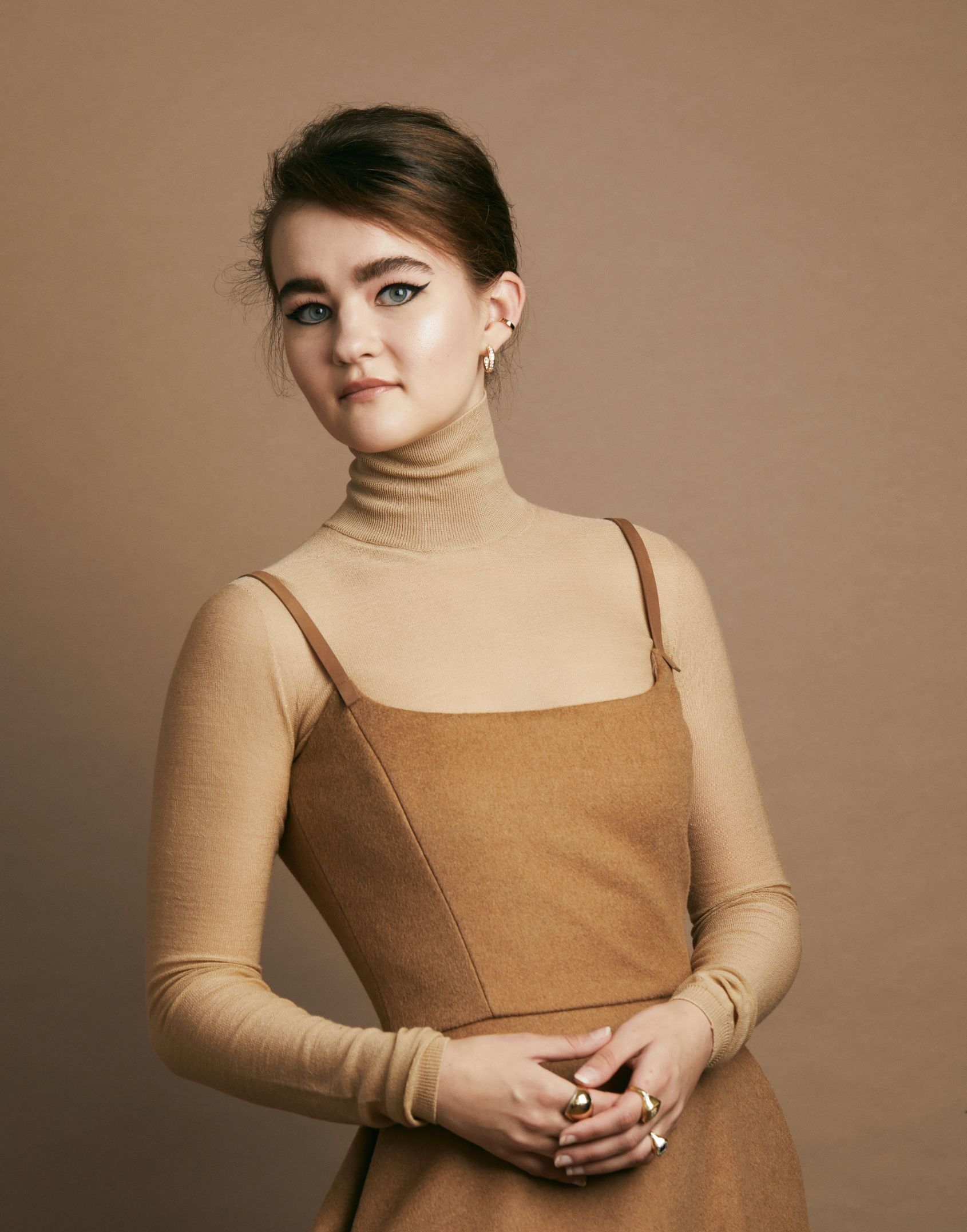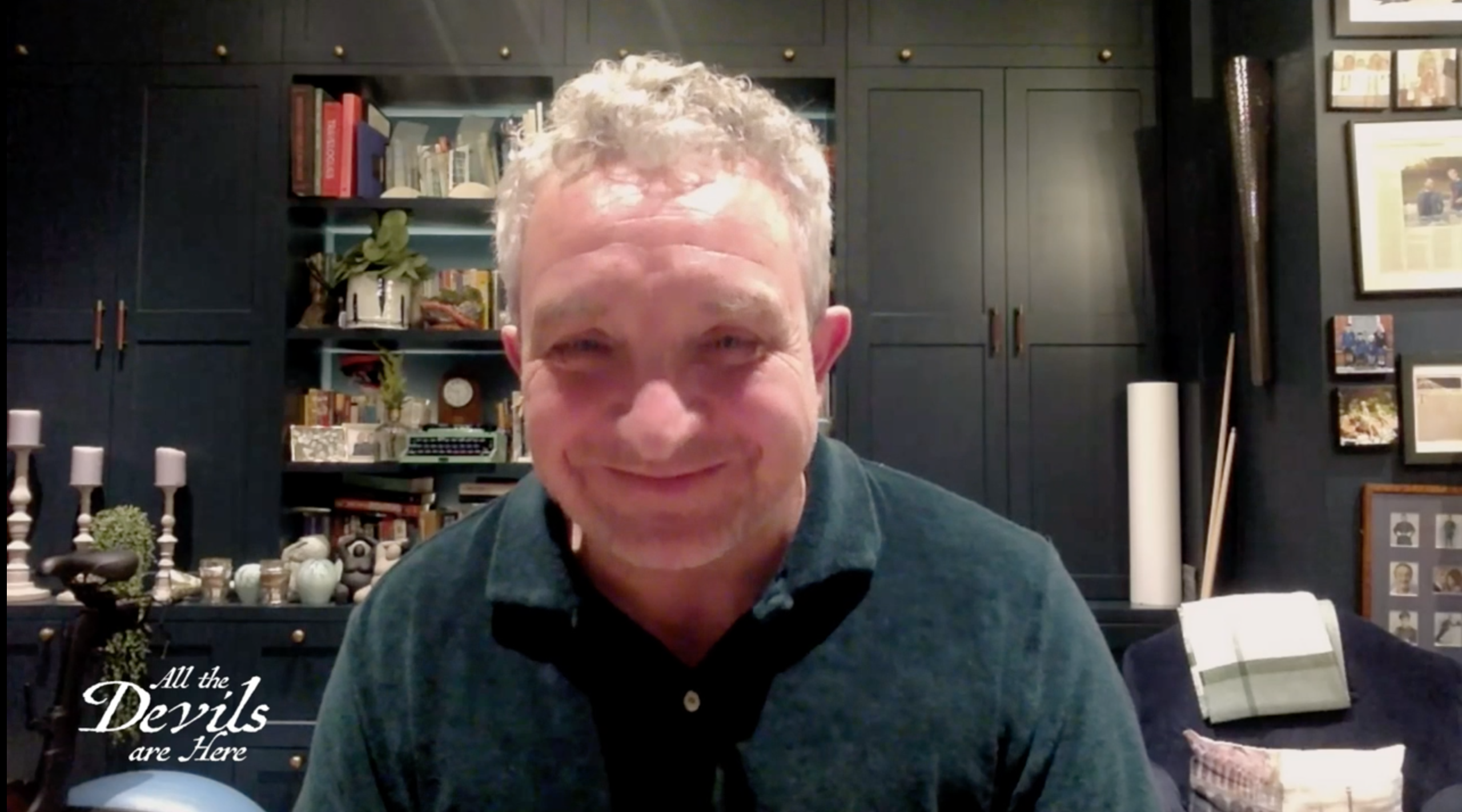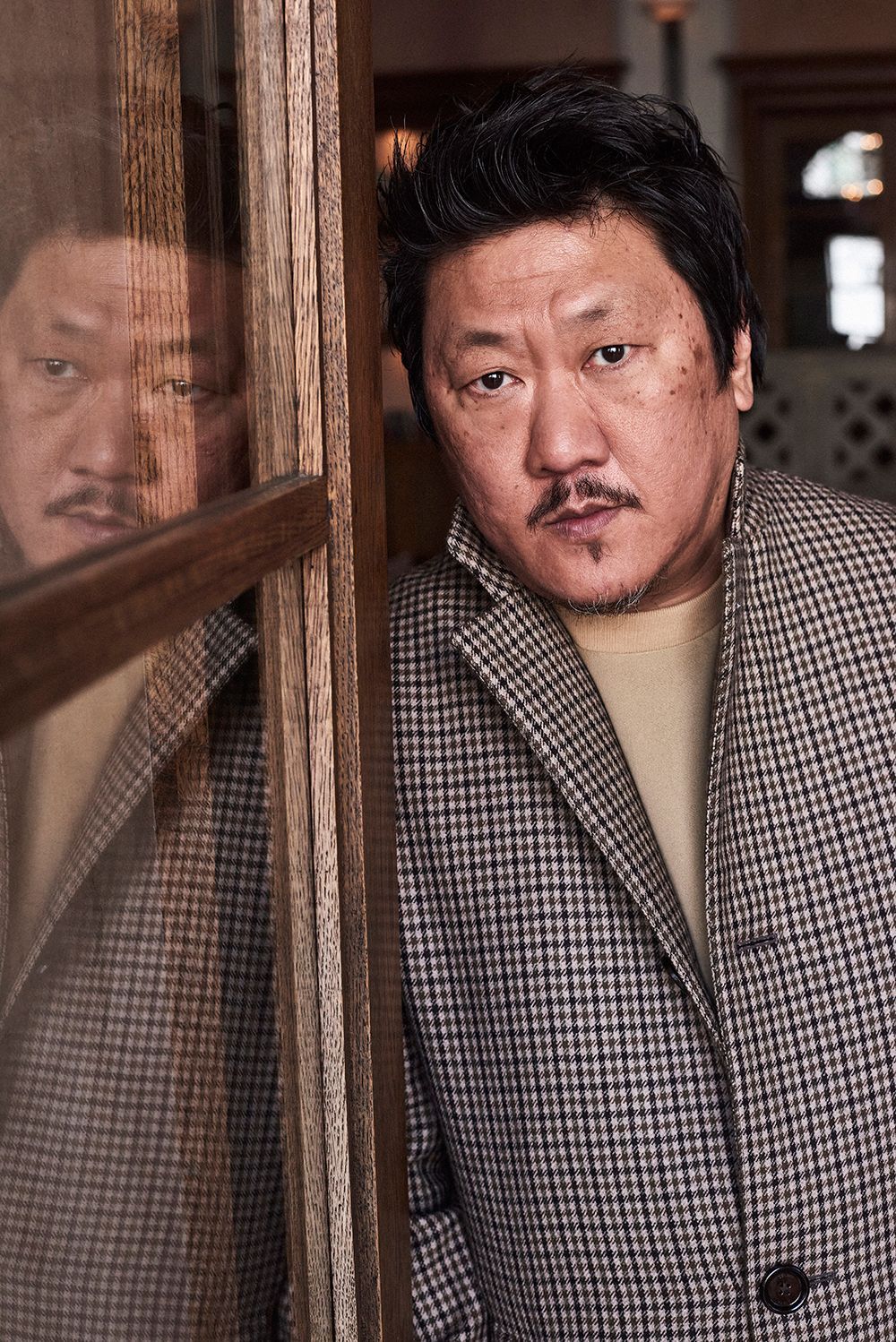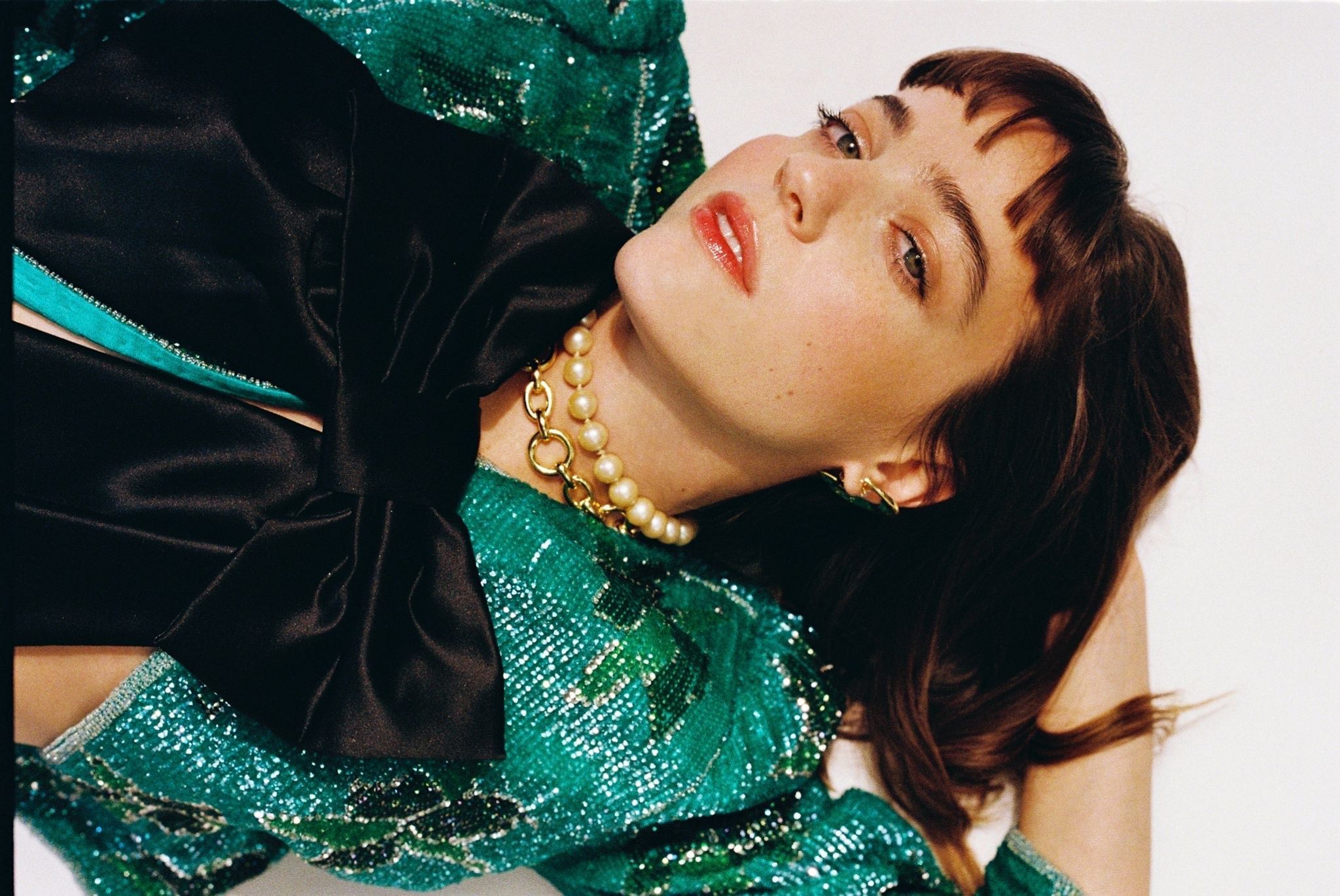Millicent Simmonds proves her powerhouse potential in Levi Holloway’s Grey House.
Last time 1883 spoke with Millicent Simmonds she was on the precipice of superstardom. From blockbuster movies to the dazzling lights of New York City’s Broadway, she’s had no trouble capturing hearts and commanding attention. Within the last few years, she’s grown into her own. At the age of 20, the actress is already beginning to see the fruits of her labor, receiving accolades for her performances; being the youngest nominee for the BAFTA EE Rising Star Award in 2022 to winning Fangoria’s Chainsaw Awards. She’s making her mark in the entertainment industry by breaking boundaries and showing that what was once impossible for deaf actors is now possible. Wishing she had a deaf role model in media when she was growing up, she now takes on the mantle with pride. Hoping those who fear their disability won’t be properly represented will see themselves in the roles she plays, find inspiration, and follow in her footsteps.
Talented beyond her years, fearless, and fierce, Millicent has proved she is a powerhouse. Making her Broadway debut in Grey House, a play by Levi Holloway, Millicent plays Bernie, in this psychological and cinematic thriller. A haunting tale about a couple whose car crashes and seek shelter in a cabin. Stepping into the spotlight, alongside co-stars, Laurie Metcalf, Tatiana Maslany, Paul Sparks, and Sophia Anne Caruso, she finds herself among some incredible company. It’s no surprise she holds her own alongside these veteran actors. Millicent’s potential is endless; not only learning from her own experiences but drawing upon those around her, captivating audiences with a spinetingling and spellbinding performance.
In conversation with 1883 Magazine’s Dana Reboe, Millicent Simmonds discusses her time on Broadway, what she’s learned from her fellow actors, what it means to break boundaries for those with disabilities, and what genre she hopes to take on next.
Congratulations on your Broadway debut! When you first read the part for Grey House what were your initial thoughts?
Thank you so much! When I first read the script, I had a visceral reaction to it. I thought this was unlike anything I’ve ever seen on a stage. It was so dark, but complex and thought-provoking at the same time. I immediately knew I wanted to be involved.
What have you learned about yourself during your time on stage?
Good question! I would say that I didn’t anticipate how much I would enjoy the rehearsal process. I really loved the time being in the room with Joe and Laurie and watching them work. When rehearsals are done, performing is a rush and exciting, but I really miss the time brainstorming and collaborating as a group. That was by far my favorite part of the whole process. I didn’t expect that at all.
Screen and stage present their own unique challenges. What do you find is the main difference between them? Do you approach them the same way?
I would say the biggest difference between stage and film is how “big” you act. During rehearsal, I would sign something, and Joe’s feedback to me was always “it needs to be bigger.” On film, the camera can pick up the slightest raise of an eyebrow or a smirk. Less is more on film. On stage, the audience needs to see if from the balcony so that was the biggest difference for me.
What about Bernie’s character did you find relatable? What do you find to be most similar and different between the two of you? What is a piece of advice you’d give to them?
Bernie is very observant and understands the house I think more than anyone else. She understands her place and everything she does is deliberate. I’m very much that way. I like to sit back and observe. I feel like she’s also the caretaker of the girls in the house. I can relate to that. I’m not sure there’s any advice I could give to Bernie that she wouldn’t already know!
Where did you find inspiration for her?
Levi shared with me a personal story that inspired him to write the role of Bernie. I really leaned into that when I thought of Bernie. I feel fortunate to have had that insight into her. I have him to thank for that.
What has been your favorite moment on stage so far?
Oh wow, I’ve had so many, it’s hard to pick just one! I would have to say our first performance during previews. It was so crazy to finally see a live audience and hear what they responded to. During rehearsals we had no idea what the audience would think was scary or funny, so it was incredible to finally get to show an audience what we had been working so hard on, and to hear the applause for the first time. I’ll never forget that moment.
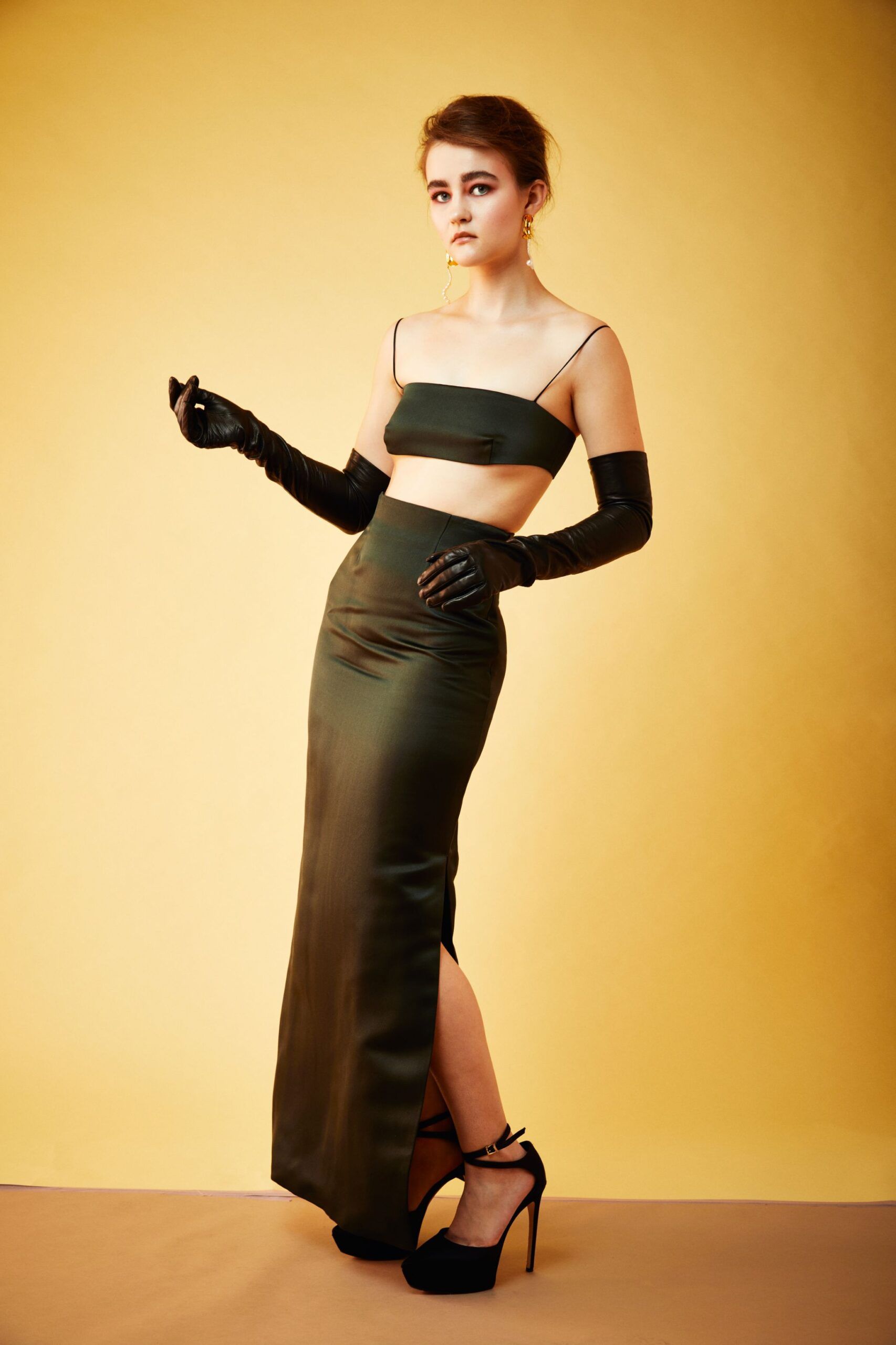
Last time we spoke with you, you were the first deaf actor to be nominated for the EE Rising Star award. You’re constantly breaking barriers and you’re a voice for more representation of disability in media. What does it mean to you, to start to see more inclusion on screen, on stage, and in other forms of media as well?
It means everything to me. I wish I would’ve had a strong Deaf role model to look up to. I didn’t see anyone like me in movies or television growing up, and as a result, never thought that would be a possibility for me. If young deaf kids can see me as a physical manifestation that their dream of becoming an actor is attainable, that is icing on the cake for me.
Looking back at how far you’ve come as an actor, what words of wisdom would you give to your younger self?
I would tell my younger self to relax and enjoy it more. I am my own worst critic and would stress out over the smallest things. I’m learning to really appreciate where I am in my career and be grateful everyday that I get to do this. A lot of that comes with age and learning to be more comfortable in my own skin. It’s a process, and I’m enjoying it more than I ever have.
You’re working alongside some seasoned heavyweights in Grey House; Laurie Metcalf, Tatiana Maslany, Paul Sparks, and Sophia Anne Caruso. Was there anything you learned from working alongside them? Or from the production as a whole?
Oh my gosh, I’ve learned so much from all of them. Laurie is a genius. I feel so fortunate to have witnessed what she brings to every rehearsal. Every day was different and exciting because of her. Emotionally, Tatiana does a lot of heavy lifting in this play. Her character goes through a lot. I never saw her give less than 100%. Every night. Paul is so brilliant and dedicated but is also flexible. When something would go wrong, Paul would shrug his shoulders, smile, and move on. I love that about Paul. Sophia’s dedication to the story and the character really inspired me. She is so collaborative and someone I really look up to admire in this business. She is beyond talented. I loved everyone in this cast and always felt safe and supported by every single cast member.
Lastly, in an interview with Women’s Wear Daily, you stated that your most recent roles have been a little heavy and dark. You’ve done psychological thrillers and horror, what is a genre you’d like to explore that you haven’t already and why?
I would love to try a comedy. I’ve noticed that most often if there is a story that includes someone with a disability, we’re meant to feel sad or pity them. That’s not reflective of my experience or my life. I would love to tell a story that is more authentic of the Deaf experience without the audience feeling sorry for the individual. I don’t think that’s a perspective we’ve seen yet.
Interview Dana Reboe
Photography Stephanie Diani
Hair Marco Santini using ColorWow at Walter Schupfer Management
Makeup Marie-Josée Leduc for Exclusive Artists using Odièle
Styling Sarah Slutsky

